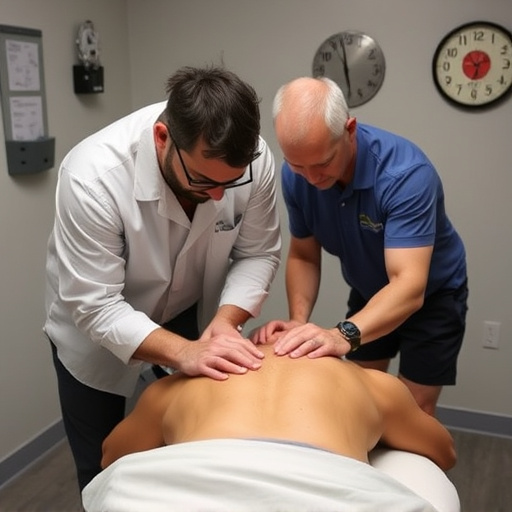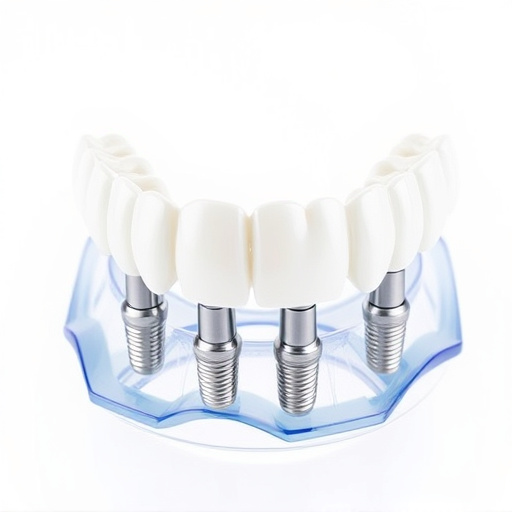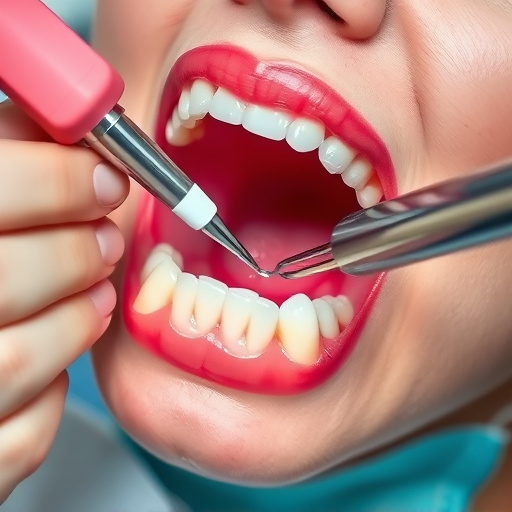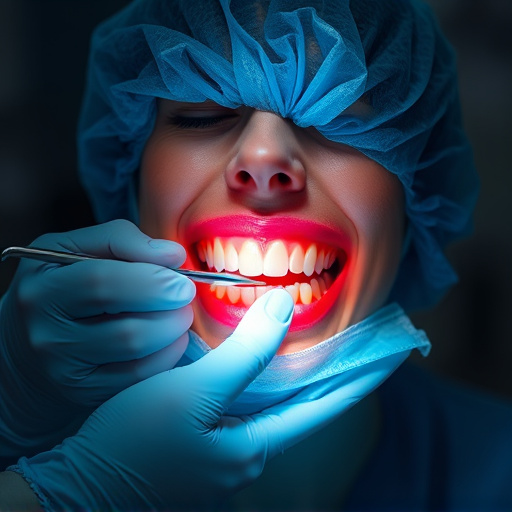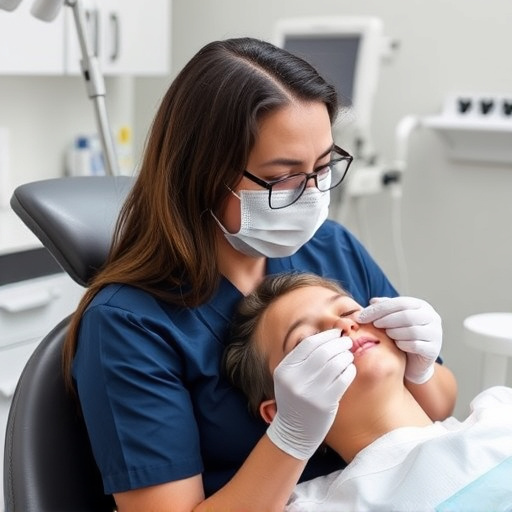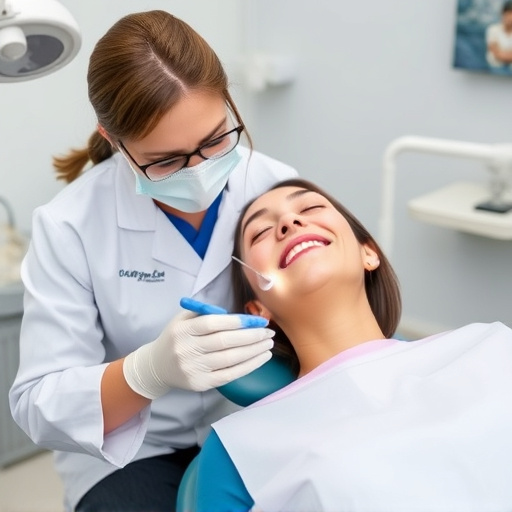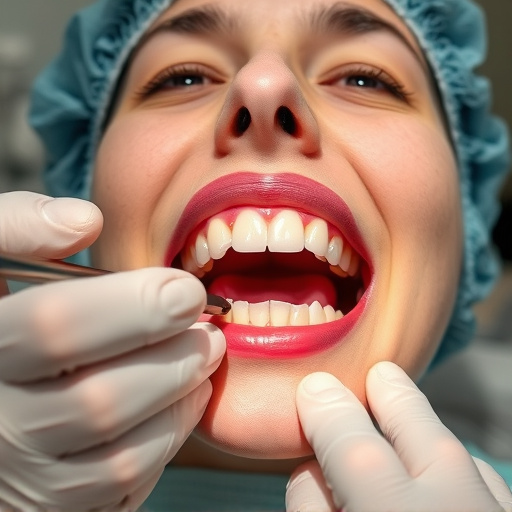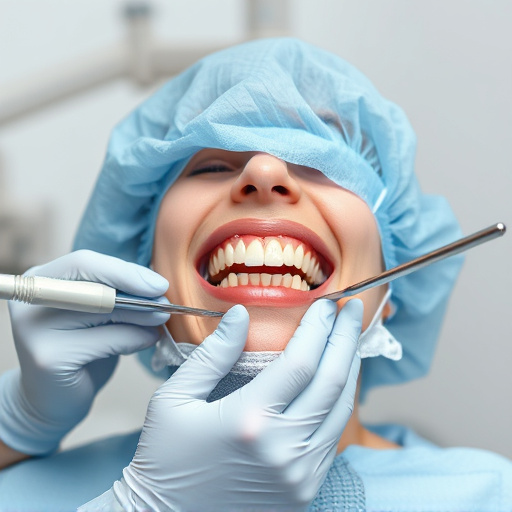In dental trauma situations like severe toothaches or knocked-out teeth, emergency dental care is vital for swift recovery. These specialized services address urgent oral health issues promptly, treating infected teeth and broken fillings to prevent complications. Timely intervention shortens recovery times, offering immediate relief, pain management, and guidance toward routine exams for long-term oral health monitoring. Advanced imaging aids diagnosis, leading to effective treatment plans ranging from bonding to extractions, ultimately restoring oral health, comfort, and well-being.
Emergency dental care plays a pivotal role in aiding swift recovery after traumatic dental incidents. Understanding when and why it’s crucial can significantly impact overall health and well-being. This article delves into the essential aspects of emergency dental care, highlighting the importance of rapid response in trauma recovery. We explore effective treatment strategies designed to optimize healing, emphasizing the transformative power of prompt dental intervention.
- Understanding Emergency Dental Care: When and Why It's Crucial
- The Role of Rapid Response in Trauma Recovery
- Effective Treatment Strategies for Optimal Healing After Dental Trauma
Understanding Emergency Dental Care: When and Why It's Crucial
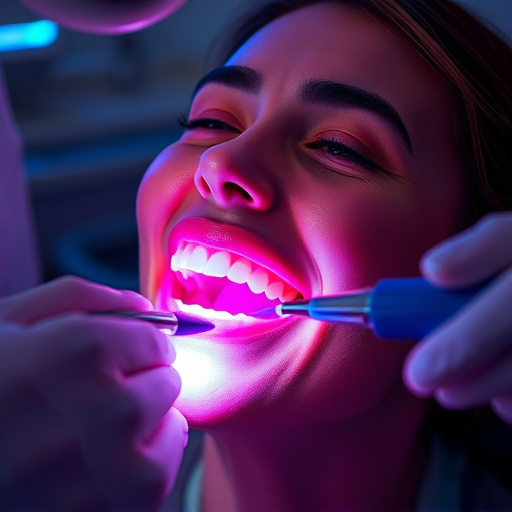
In situations of dental trauma, whether it’s a severe toothache due to injury or a knocked-out tooth, emergency dental care becomes an indispensable component of your recovery process. It’s more than just a quick fix; it’s a specialized service designed to address urgent oral health issues that can significantly impact overall well-being. Understanding when and why to seek such care is vital for effective trauma management.
Emergency dental services offer immediate attention, ensuring that conditions like infected teeth, broken fillings, or loose dentures are treated promptly. This rapid response not only alleviates pain but also prevents further complications. For instance, a simple teeth cleaning or dental filling might be all that’s needed to restore oral health and prevent more severe procedures later. Timely intervention can make a world of difference in the recovery timeline, ensuring patients can get back on their feet faster while maintaining overall health and comfort.
The Role of Rapid Response in Trauma Recovery
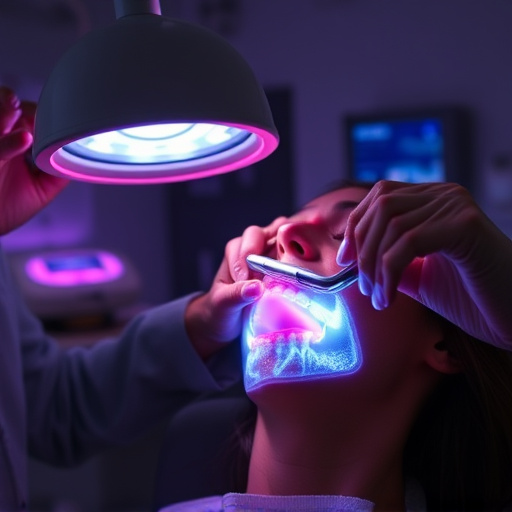
In the chaotic moments following a traumatic event, every second counts when it comes to ensuring optimal recovery. Emergency dental care plays an integral role in this process by providing rapid response and specialized treatment for oral injuries. The initial stages of trauma recovery often involve minimizing damage and controlling bleeding, which emergency dental professionals are equipped to handle effectively. This timely intervention can significantly reduce the risk of further complications and long-term oral health issues.
A key aspect of emergency dental care is its ability to bridge the gap between immediate treatment and ongoing preventive dentistry. After stabilizing the patient, dental care teams assess the extent of the trauma, offering both emergency relief and a path towards restorative dentistry. Routine oral exams become even more crucial following a traumatic incident, allowing dental healthcare providers to monitor healing, identify potential complications, and initiate appropriate treatments, including those related to cosmetic dentistry, to restore a patient’s oral health and confidence.
Effective Treatment Strategies for Optimal Healing After Dental Trauma
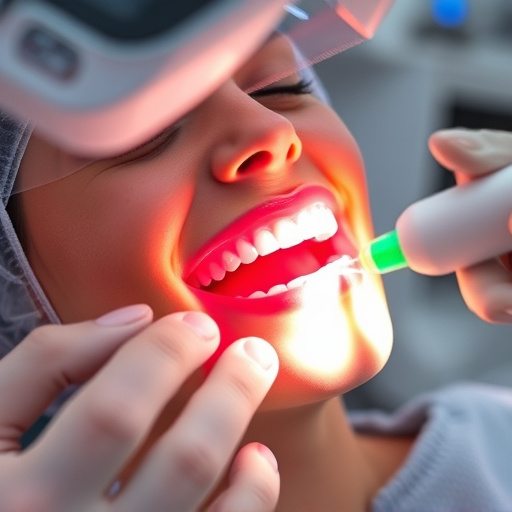
In the event of dental trauma, a swift response is key to ensuring optimal healing. Emergency dental care plays a pivotal role in managing and treating such injuries, aiming to stabilise the patient and set the stage for effective recovery. The initial steps focus on pain management and controlling any bleeding, followed by thorough examination and diagnosis. This may involve advanced imaging like X-rays or CT scans to assess the extent of damage.
Effective treatment strategies include a combination of interventions such as dental bonding for minor cracks or chips, teeth cleaning to remove debris and prevent infection, and in severe cases, tooth extractions to avoid further complications. The goal is to restore oral function, alleviate pain, and maintain overall oral health, all while ensuring the patient’s comfort and well-being throughout the recovery process.
Emergency dental care plays a pivotal role in trauma recovery, offering swift and specialized treatment to alleviate pain and preserve oral health. By quickly addressing dental emergencies, individuals can accelerate their road to full recovery, ensuring both physical and emotional well-being. With effective strategies in place, emergency dental care becomes a vital game-changer, enabling folks to regain their smile and confidence post-trauma.


